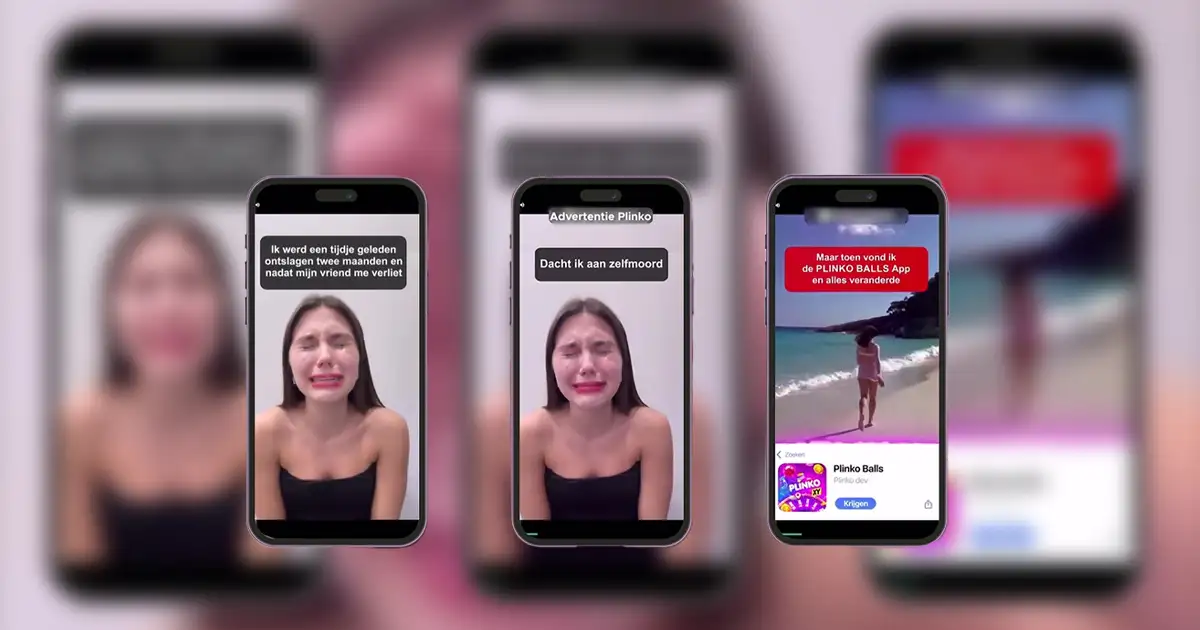Kassa reveals illegal gambling ads in popular mobile games
The television program Kassa has revealed that illegal gambling advertisements are being shown in the game Bejeweled Blitz by Electronic Arts (EA). An in-depth investigation by Kassa shows that, in addition to regular advertisements, players are confronted with gambling advertisements for the casino game Plinko. These advertisements, which are aimed at players of an innocent puzzle game, attract a lot of attention because of their misleading and potentially dangerous content.
Investigation into gambling advertisements in Bejeweled Blitz causes great concern
Presenter Mai Verbij delved into the world of mobile games and discovered that in addition to advertisements for legitimate companies such as Booking.com and Vinted, there are also advertisements for illegal gambling sites. The advertisement specifically focuses on the casino game Plinko, which is offered illegally in the Netherlands.
The gambling advertisements paint a worrying picture. They depict men and women who supposedly thought about suicide before discovering Plinko. According to the advertisements, playing this game brought them luck and, even more worryingly, a lot of money. This message is presented as if gambling were a solution to serious mental health problems, which has alarm bells ringing among experts.
113 Suicide Prevention sounds the alarm about misleading gambling advertisements
The organization 113 Suicide Prevention has indicated that it has already received several complaints about the harmful nature of these advertisements. Marijke Geerdink, clinical psychologist at the organization, expresses her concerns about the possible consequences of such advertisements:
“This is a worrying development. Such advertisements can increase the risk of suicide, especially among vulnerable groups. Gambling is presented as a way out, while it can actually worsen gambling problems. We know that people with gambling problems are 15 times more likely to die from suicide.”
These statements underline the urgency of the problem and put pressure on companies and authorities to take action.
Banks like ING victims of brand abuse in illegal advertisements
In addition to the emotional abuse in the advertisements, brand abuse is also coming to light. The advertisements use logos of well-known banks such as ING without their permission. ING responded by stating that they were not aware of this abuse. According to Japke Kaastra of ING, the use of their brand to encourage people to gamble illegally is unacceptable.
The bank has now taken legal action against the advertisers, the app, and the platforms that distribute these advertisements. This puts extra pressure on the parties involved to curb the distribution of this type of illegal advertisement.
Electronic Arts responds to the situation but has not yet solved the problem
When Kassa reported this to Electronic Arts (EA), it took three weeks for the company to respond. EA stated that their advertising partners normally block this type of illegal content, but that some advertisements had slipped through the checks. The company apologized and indicated that it had removed the advertising campaigns from the game.
However, despite this promise, the illegal gambling advertisements quickly returned in Bejeweled Blitz. EA has again indicated that it will take action, but according to the Kassa investigation, no permanent solution has been found to date.
Gaming Authority investigates illegal gambling advertisements in apps
The Gaming Authority (Ksa) has been investigating the presence of illegal gambling advertisements in mobile gaming apps since the beginning of this year. Research by CasinoNieuws.nl previously showed that Dutch players are regularly exposed to advertisements for illegal online casinos. These advertisements use gamblers who would win many thousands of euros in the advertisements, which gives a distorted and misleading picture of reality.
In June, the Volkskrant also paid attention to this problem, whereupon the Ksa confirmed that it was investigating the extent of these illegal practices. However, the question remains how quickly and effectively the authorities can intervene to protect players, especially the younger and vulnerable target groups.


